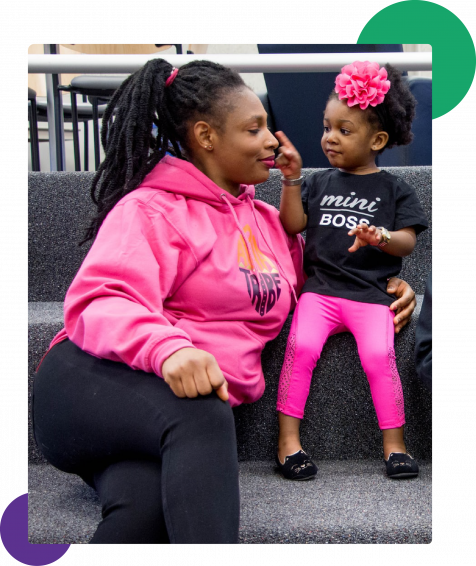Address the Eviction Crisis
SHEcovery™ Actions

Before the COVID-19 pandemic, Chicago’s low-income renters and households of color were already experiencing high levels of housing insecurity. As the employment crisis worsened for women and people of color, rent payments were delayed, revealing an ominous threat of eviction to an already distressed population.
Pre-existing disparities in race and socioeconomic status affected housing realities for renters and homeowners during the pandemic; women and people of color were among the most negatively affected.
Impact on Families of Color
Impact on Women
The lifting of federal eviction moratoriums will impact approximately 21,000 Chicago households as they could be evicted from their homes. Once evicted, the risk of homelessness only increases.
Impact on Women
Impact on Women
In Chicago, at least 32% of households are headed by single women.16 Nationally, 52.5% of Black households are headed by women, which means that the likelihood of women bearing the brunt of eviction risk is high across the nation and within Chicago.17
Impact on Women
Eviction data tells us that 1 in 5 Black women are evicted, compared with 1 in 15 white women. The pandemic has only intensified this issue, given that Black (and Latina) women have seen the most significant drop in their employment-to population ratios since February 2020.
SHEcovery™
Priorities
In Action
- Prevent displacement of low-income families
- Advocate to reinstate the federal eviction moratorium
- Support to seal COVID-19 related evictions
- Protect and expand affordable housing
- Preserve existing affordable housing
- Build a pipeline of affordable housing units

thousands of Chicago residents did not have a place to call home."

